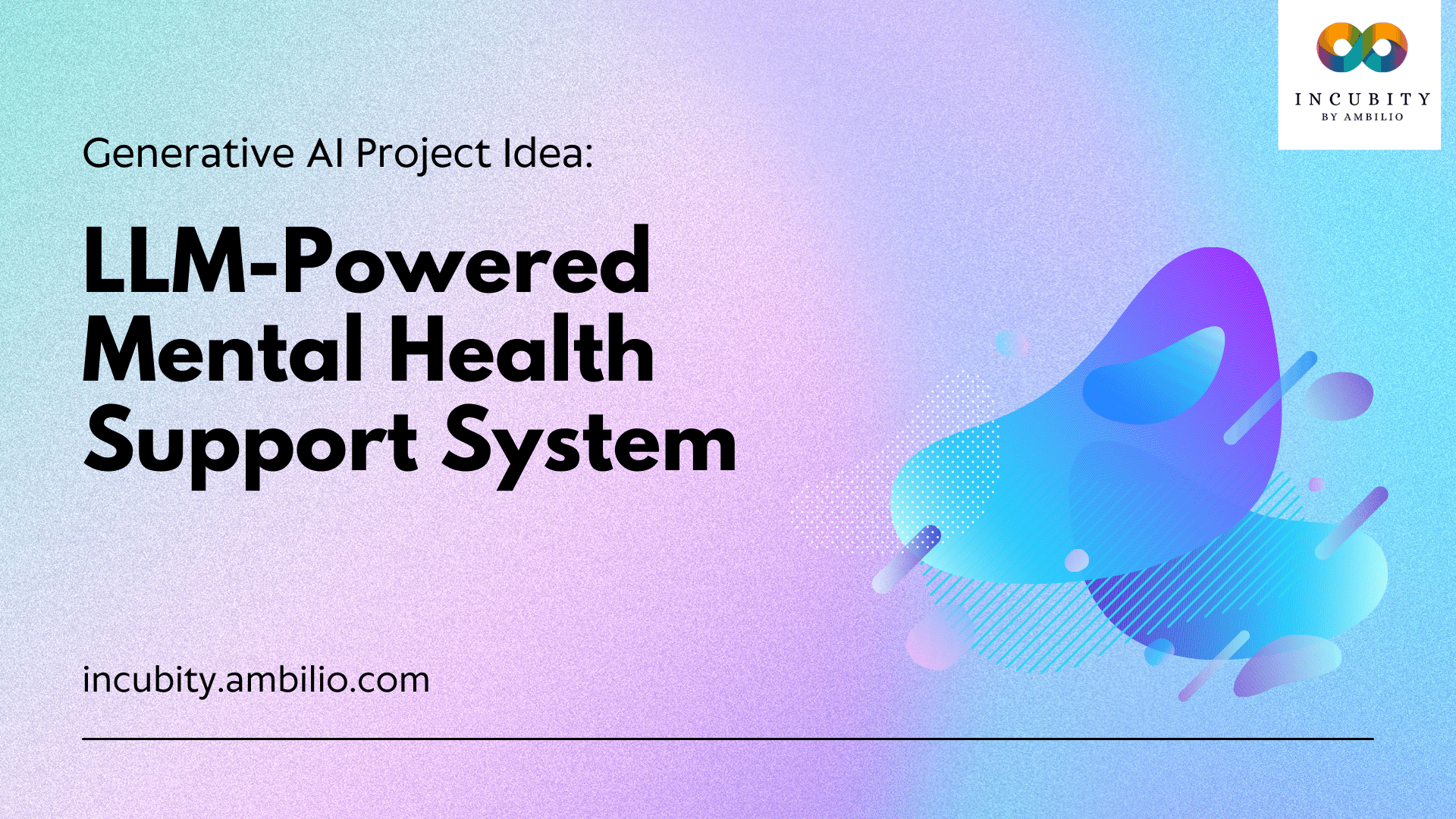In today’s fast-paced and stressful world, mental health issues have become increasingly prevalent. However, accessing timely and effective support remains a significant challenge for many individuals. To address this pressing need, the development of a Large Language Model (LLM)-powered mental health support system emerges as a promising solution. By leveraging cutting-edge artificial intelligence technology, this system aims to provide accessible, scalable, and personalized support to individuals facing mental health challenges. Let’s delve into the details of building a LLM-powered mental health support system
Why Such a Solution is Needed?
The need for a LLM-powered mental health support system arises from several critical factors:
- Increasing Mental Health Concerns: Mental health issues, such as anxiety and depression, are on the rise globally, with millions of people affected each year. However, limited access to mental health professionals and stigma surrounding mental illness often prevent individuals from seeking help.
- Shortage of Mental Health Professionals: There is a shortage of mental health professionals, particularly in rural and underserved areas. This shortage exacerbates the challenges individuals face in accessing timely support and treatment.
- Barriers to Traditional Therapy: Traditional therapy sessions can be expensive, time-consuming, and intimidating for individuals experiencing mental health issues, leading to delays in seeking help and receiving appropriate care.
How Can LLM-Powered Mental Health Support System Be Developed?
The development of a LLM-powered mental health support system is a complex but achievable endeavor. Here’s a detailed breakdown of the key steps involved:
1. Data Collection and Training:
- Gather a diverse dataset of mental health-related text data from various sources such as therapy transcripts, self-help resources, support forums, and peer-reviewed literature.
- Ensure the dataset covers a wide range of mental health conditions, symptoms, treatment approaches, and user interactions to provide a comprehensive training ground for the LLM.
- Preprocess and annotate the data to prepare it for training, including tasks such as cleaning, tokenization, and labeling relevant information.
2. Model Development and Optimization:
- Select an appropriate LLM architecture suited for the task, considering factors such as model size, computational resources, and performance metrics.
- Train the LLM using the collected dataset, fine-tuning its parameters to optimize performance in understanding and generating contextually relevant responses to user inquiries about mental health.
- Experiment with different training techniques, such as transfer learning from pre-trained models or multi-task learning, to enhance the model’s capabilities in handling diverse mental health scenarios.
3. Integration of Conversational Interface:
- Design and implement a user-friendly conversational interface that allows individuals to interact with the LLM-powered system seamlessly.
- Incorporate natural language processing (NLP) techniques to preprocess user input, extract relevant information, and generate coherent responses in a conversational style.
- Enable multi-modal interaction options, including text-based chat interfaces and voice-based assistants, to accommodate diverse user preferences and accessibility needs.
4. Testing and Validation:
- Conduct thorough testing and validation to evaluate the performance and reliability of the developed system.
- Design test scenarios and use cases to assess the system’s accuracy, responsiveness, and ability to handle various user interactions effectively.
- Employ automated testing frameworks and manual evaluations by domain experts to identify potential weaknesses, bugs, or biases in the system’s behavior.
- Validate the system’s performance against established benchmarks and guidelines for mental health support systems, ensuring compliance with ethical standards and user privacy regulations.
By following these steps, developers can build a robust and effective LLM-powered mental health support system that meets the needs of users while adhering to the highest standards of quality, reliability, and ethical practice. This comprehensive approach ensures that the system is not only technically proficient but also user-friendly, accessible, and impactful in addressing mental health challenges.
Benefits of a LLM-Powered Mental Health Support System
Implementing a LLM-powered mental health support system offers a wide range of benefits:
- Increased Accessibility: The system provides immediate and accessible support anytime, anywhere, overcoming barriers such as geographical location and time constraints.
- Reduced Stigma: By offering a discreet and non-judgmental platform for seeking help, the system helps reduce the stigma associated with mental illness, encouraging more individuals to seek support.
- Early Intervention: The system can detect early signs of mental health issues, intervene promptly, and provide resources and coping strategies to prevent escalation.
- Scalability and Personalization: The system can be scaled to serve a large population and tailored to individual user preferences, providing personalized support and interventions.
Business Value for Healthcare Providers
Healthcare providers can expect several tangible benefits from implementing a LLM-powered mental health support system:
- Cost Savings: The system reduces the burden on mental health professionals by handling basic inquiries and providing support at a lower cost compared to traditional therapy sessions.
- Improved Patient Outcomes: By offering timely and accessible support, the system helps improve patient outcomes, reducing the risk of crisis situations and enhancing overall well-being.
- Data Insights and Service Enhancement: The system generates valuable data insights on user needs and trends, informing the development of more effective mental health services and interventions.
- Enhanced Reputation and Differentiation: Healthcare providers that offer innovative and technology-driven mental health support solutions can differentiate themselves in the market and attract more patients seeking accessible and high-quality care.
In conclusion, a LLM-powered mental health support system represents a transformative solution for addressing the growing mental health crisis. By leveraging advanced AI technology, this system offers accessible, scalable, and personalized support to individuals in need, while also delivering significant business value for healthcare providers. As we continue to prioritize mental health and well-being, investing in such innovative solutions holds immense potential to improve lives and strengthen healthcare systems worldwide.



